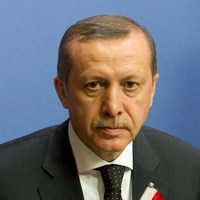The fall of Mosul to the Islamic State of Iraq and Syria (ISIS), also referred to as the Islamic State of Iraq and the Levant (ISIL), suddenly put Iraq back on the top of the U.S. foreign policy agenda. Although stories of fleeing Iraqi troops and stolen U.S.-supplied Humvees got most of the attention in U.S. media, the hostage-taking of 49 Turkish citizens, including special forces, diplomats and children, from the Turkish consulate in Mosul, as well as 31 other Turks from elsewhere in northern Iraq, could limit U.S. options in responding to the growing chaos in Iraq.
Turkey imposed a media blackout on discussion of the hostages, prompting criticism from some journalists but preventing anything approaching the type of media firestorm that unfolded in the United States over the 2012 killing of four Americans, including Ambassador Christopher Stevens, at the U.S. consulate in Benghazi. Nevertheless, the success of ISIS in taking so many hostages is seen as a “big failure on the part of the Turkish foreign policy establishment,” according to Sinan Ulgen of the Carnegie Endowment for International Peace. Securing their safe return has become a priority for the government of Turkish Prime Minister Recep Tayyip Erdogan.
Hours before the kidnapping, Turkish Foreign Minister Ahmet Davutoglu posted a message on Twitter saying that Turkey was taking all necessary security precautions at the consulate in Mosul.

